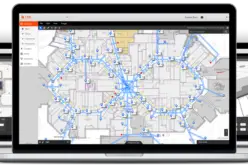Goals, Objectives, and Research Methods of the Thesis
Writing a thesis involves the study of a particular problem, which is impossible without properly defined goals, objectives, and methods of achieving them. These concepts are closely interrelated and lead to the full disclosure of the chosen topic if they correspond to its essence.
Research methods
The author chooses methods of studying the topic according to the scope of its activities and project objectives, as each issue requires a special approach.
A method is an action aimed at achieving a goal. The most common research methods are the following:
- Analysis – the study of the components of the subject of study.
- Analogy – the study of similarities and differences in the characteristics of the subject of study and its analog.
- Induction – the formation of conclusions from general to specific.
- Deduction – a method opposite to induction, ie conclusions are made from specific to general.
- Modeling – the formation of conclusions about the object of study based on the study of the model-analog of the subject of study.
- Classification – the division of research subjects into groups according to their properties. This method is often used in the humanities.
- Generalization – this method is similar to the method of deduction: based on the characteristics of the subject conclusions are made about it.
- Observation is a method of scientific knowledge of phenomena.
- Synthesis – a combination of all the qualities and characteristics of the subject of study.
- Forecasting – the formation of conclusions based on opinions about trends in the subject.
- Experiment – a practical study of the subject and the formation of conclusions.
In the text of the introductory part of the thesis, you need to briefly indicate the essence of the research methods used. It is important to emphasize the fact that the success of the study is enhanced by a combination of different methods that reveal all aspects of the phenomenon being studied, as well as provide cross-checking the objectivity of the results.
Goals and objectives
Regardless of how the thesis was written: independently or to order, it is useful to know exactly how the goals and objectives of the study are related to its topic.
The goal is what the author seeks to achieve by studying the chosen issues. Perhaps it is the formation of a position, a systematic view of an issue, an in-depth study of a particular area, the denial or proof of someone’s opinion, theorems, development and implementation of a plan, etc. Objectives help to determine the relevance of the topic and objectives of the study.
Tasks are successive stages that are interconnected, they lead to the achievement of goals. Usually, each section and stage of scientific work corresponds to a specific task that helps the author to navigate. There can be as many tasks as needed to test the hypothesis. And they are formulated so that on their basis it is possible to develop appropriate methods.
If the goals of the work, from a linguistic point of view, are nouns, then the tasks will be verbs, for example: to conduct, to investigate, to study, to explain, to describe, to develop, to compare, etc. In no case should the task be confused with the work plan? It happens that students formulate the essence of tasks incorrectly, for example: to conclude, to choose methods, to study thematic literature, etc. This line of thought is not related to the problem of the research, its subject, object, and hypothesis. And during the defense, the members of the commission have several questions that the author can not answer, and this leads him to complete failure.
In the scientific practice of writing theses there are already templates for formulating tasks, for example:
- Establish a connection between…
- Based on the study to determine whether there are differences between…
- Based on the analysis of literature data to determine approaches to the study of…
- Conduct a critical analysis of the concept…
- Develop practical recommendations…
Professional thesis writers can find similar templates in manuals on the methodology of writing scientific papers. In addition, there is a lot of useful information that will help in the implementation of the thesis project.
The supervisor can always help to determine the goals, objectives, and research methods. The student should consult with him, especially in this matter, because what will be these basic concepts, depends on the progress of all work, and hence its result.










